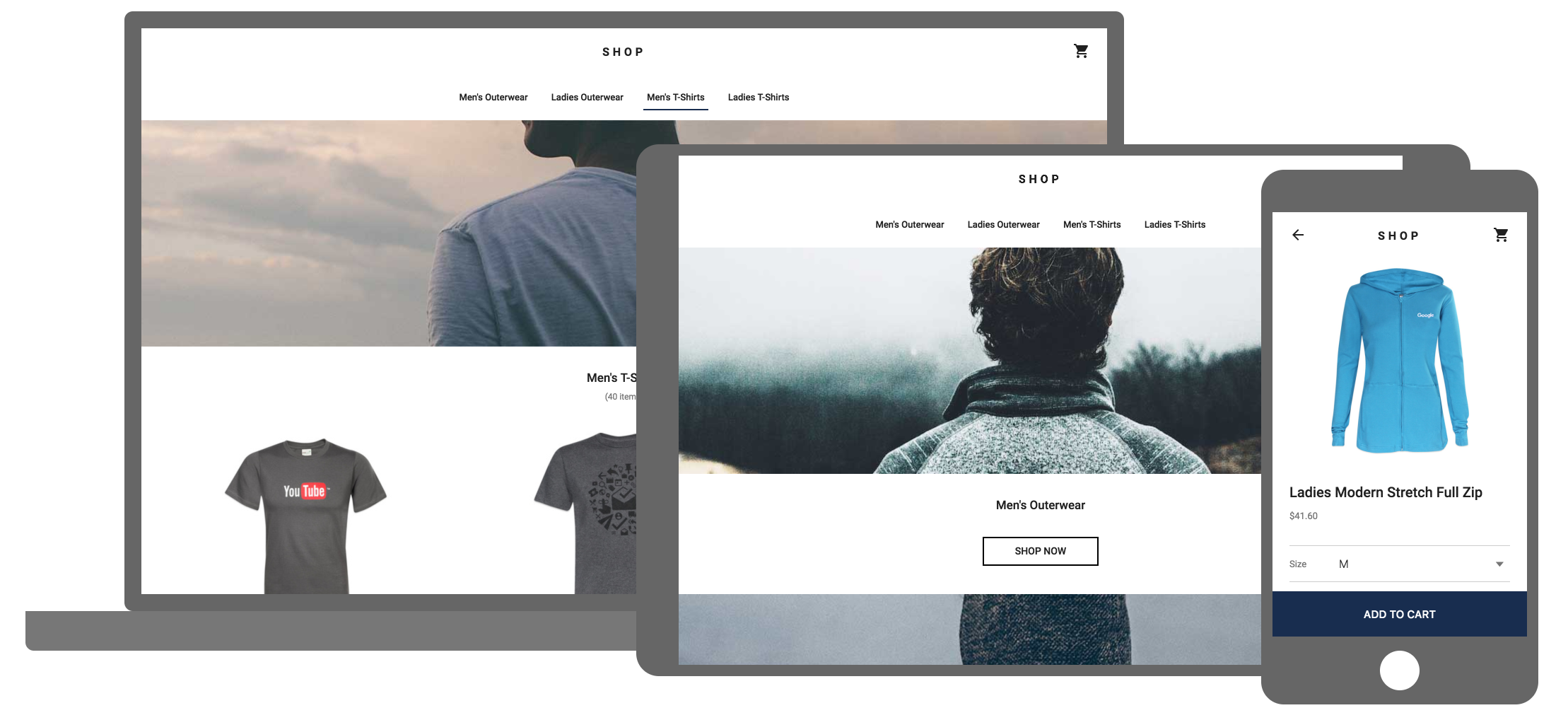New features:
- Adds webpack, retains Polymer CLI
- Anchor-based routes
- Splits larger templates into their own files
- Adds optional, easy-to-subclass currency conversion via the free.currencyconverterapi.com API, prior to PayPal (which will do the actual conversion).
- Data source switched to Google Sheets
- Added Configuration object
- Makes Google Analytics optional via Config
- Makes sizes and quantities optional (eg for selling paintings)
- Allows a price per size via CSV in the Sheets fields (eg for different sized prints)
- Optional translations via i18next
- All price computations now take place in the details page
- PayPal express checkout
Outstanding features:
- i18n of static elements and sheet details
- Shopping basket page - remove change quantities when not appropriate after details page does the computation, or revisit details'
_computePricemethod andtotalPricefield used inshop-app/shop-cart-data/cart view.
Create a .env file in the root directory containing:
googlesheetsapikey
spreadsheetid
currencyconverterapikey
ppac - PayPal account
ppclientid - PayPal Client ID
ppsecret - Not used
Create a Google Sheet document with one sheet per shop category each sheet with titled columns, whose text is used by the code:
name title price description image largeImage sizes quantities options
The image and largeImage fields should be URLs. As with the original project, the former image is 250 px square, the latter 532 px square.
To get the spreadsheetid, in Sheets, select 'Share', and 'get shareable link'. Your spreadsheet ID is embedded within that link.
The data in the spreadsheet follows the original project model: the description should contain raw HTML; the name should be URI-friendly, the title is displayed on the page.
In addition to the original model, the options, sizes and quantities columns control whether or not to display those inputs, and are CSVs. User selection of sizes and quantities will effect the price, but options is just a note to the seller.
The code to control the interpretation of the spreadsheet is in shop-category-data's _reformatJson routine.
Update src/Config.js categoryList to reflect your Google Sheet, the static being
an array of objects that reflect the individual sheets that detail the categories:
{
name: 'sheet-name', // Text on the sheet tab
sheetName: 'sheet-name', // Text on the sheet tab
title: 'Category Name', // Category title for display
placeholder: 'data:image/png;base64...' // Lo-res preload Base64 encoded category hero image
image: 'images/mens_outerwear.png', // Hi-res final Base64 encoded category hero image
},
Integrates PayPal using the simplest of all APIs via Morbidick's PayPal checkout: settings are in .env via src/Config.js.
Create an app via the PayPal develpoer dashboardapplications/ - do not use Braintree. Create and use a PayPal test account.
Shop is a sample e-commerce Progressive Web App.
- a sample e-commerce shopping site
- pattern for a real-life shopping cart and store checkout flow
- pattern for using custom announcers for accessibility
$ git clone https://github.com/Polymer/shop.git
$ cd shop
$ npm i
$ npm start$ npm run buildTo test prpl-server build:
$ npm run serve:prpl-serverTo test static build:
$ npm run serve:staticOur production deployment of SHOP is hosted on App Engine with Node.js. It can be deployed with the same steps as PWA Starter Kit.
